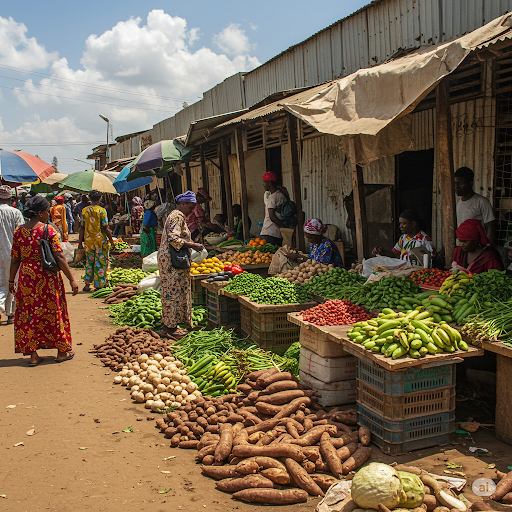Broadcasting
MultiChoice-Canal+ Approach Regulators with Merger Terms

MultiChoice and Canal+ have given details of the next steps in Canal’s mandatory takeover of the South African pay-TV company.

In a Combined Circular setting out the terms and conditions of the offer, it is confirmed Canal will acquire all the issued ordinary shares in MultiChoice it doesn’t already own, excluding treasury shares, from MultiChoice Shareholders for ZAR125.00 per share, payable in cash.
Canal+ and MultiChoice have now made a joint merger control filing to Competition Commission and are also engaging with the Independent Communications Authority of South Africa (ICASA) and other regulatory authorities.
Under the South Africa competition law, the transaction is classified as a ‘larger merger’, which requires approval by the Competition Tribunal.
MultiChoice officially accepted the offer from the Vivendi unit in June.
The combined company will have a presence in both the French and English-speaking markets. While Canal naturally has a hold over French-speaking African nations, MultiChoice has a stronger presence in English-speaking countries, including South Africa, Nigeria and Kenya.
Broadcasting
Anambra State Government Launches SolutionLens to Drive Transparency and Citizen Engagement

Anambra State Government has launched SolutionLens, a technology-driven platform aimed at enhancing transparency, accountability, and citizen engagement in governance.

The platform, developed through a collaborative effort by the Ministry of Budget and Economic Planning, the Ministry of Information, and the Anambra State ICT Agency, was unveiled on Thursday, May 15, 2025, at the Solution Innovation District (SID) Building in Awka.
Speaking at the launch, Mrs. Chiamaka Nnake, Honourable Commissioner for Budget and Economic Planning, described SolutionLens as a democratic tool that simplifies the Open Government Partnership (OGP) process.
She emphasized its role in planning, budgeting, and fostering investor confidence through community-based feedback mechanisms.
In her remarks, Mrs. Ogochukwu Orji, the State Coordinator of OGP, noted that SolutionLens is designed to shine a light on public projects, empowering citizens to ask questions, hold the government accountable, and ensure resources are used for the common good.
Key Features of SolutionLens
Centralized digital hub for government projects
Interactive maps with a user-friendly interface
Live chat feature to connect citizens directly with MDAs
A live demonstration of the platform was conducted, followed by the formal inauguration of MDA focal persons, who will ensure the platform remains updated and responsive.
Participants commended Governor Charles Chukwuma Soludo, CFR, for this forward-thinking initiative, describing SolutionLens as a game-changer in governance.
The government urged citizens to actively engage with the platform and spread awareness, emphasizing that this initiative will safeguard the integrity and prosperity of Anambra State for generations to come.
Broadcasting
Governor Hyacinth Alia Named Among Nigeria’s Top 50 Digital Economy MVPs for 2025

Benue State Governor, Rev. Fr. Dr. Hyacinth Iormem Alia, has been named among the “50 Most Valuable Personalities (50MVPs) in Nigeria’s Digital Economy 2025,” a prestigious recognition celebrating visionary leadership in technology-driven governance.

Governor Alia’s administration has prioritized digital inclusion and ICT development, introducing groundbreaking initiatives that position Benue State at the forefront of Nigeria’s digital economy. Under his leadership, the government has established three key institutions: the Ministry of Communications, Innovation & Digital Economy, the Benue State Digital Infrastructure Company (BDIC), and the Benue State Digital Infrastructure Services Management and Enforcement Agency (BENDISMEA).
Since assuming office, Alia has launched several digital initiatives, including training over 40,000 civil servants in e-governance tools and equipping 10,000 youths with digital skills. Additionally, the government has set up 276 e-commerce hubs across council wards to support local businesses and young entrepreneurs.
The BDIC, a core driver of Benue’s tech transformation, has spearheaded projects in digital financial inclusion, AI education, and broadband expansion. The state has also partnered with the Digital Bridge Institute (DBI) to establish digital training hubs in all local government areas, targeting 23,000 trainees annually.
Alia’s recognition as one of Nigeria’s top digital leaders will be formalized at the West Africa Convergence Conference (WACC) 2025, scheduled for May 22 at The Colosseum, Lagos. The annual event, organized by Knowhow Media, brings together policymakers and innovators shaping Nigeria’s digital future.
Speaking on the selection process, Dr. Sola Afolabi, Chairman of the 2025 Nomination Committee, praised Alia’s contribution, describing his digital initiatives as “transformational steps that set the benchmark for technology-driven governance.”
Previous editions of the 50MVPs in Nigeria’s Digital Economy have honored notable figures such as Minister of Humanitarian Affairs, Prof. Nentawe Goshwe Yilwatda, and NDPC CEO, Dr. Vincent Olatunji.
Governor Alia’s reforms reflect a broader shift towards digital governance in Nigeria, highlighting the potential of technology to drive inclusive economic growth and efficient public administration.
Broadcasting
E-commerce Lessons for Scaling Nigeria’s Food Distribution

By Diana Tenebe, Chief Operating Officer, Foodstuff Store
Nigeria stands at the cusp of an agricultural revolution with the ambitious plan to significantly transform its food and agriculture sector through the launch of the $510 million Special Agro-Industrial Processing Zones (SAPZ), financed by the African Development Bank and development partners. Fueled by the integration of cutting-edge technologies aimed at boosting food production and ensuring national food security. However, as yields increase, a formidable hurdle remains: the efficient and scalable distribution of this bounty across the nation’s diverse landscapes, often hampered by infrastructural limitations and logistical complexities.

Dr. Bosun Tijani, the Minister of Communication, Innovation, and Digital Economy, recently called on Nigerian farmers to prepare for digital and technologically advanced farming methods, emphasising their crucial role in boosting food production and security. Building upon this call for technological integration, and to truly unlock the full potential of Nigerian agriculture and ensure increased harvests translate to accessible and affordable food for all, the sector can draw invaluable lessons from the operational prowess of e-commerce giants like Amazon. Their success in navigating complex logistics and reaching vast customer bases offers a compelling blueprint for transforming Nigeria’s food distribution network.
Amazon’s dominance in the e-commerce realm is underpinned by a meticulously crafted logistics and supply chain system. Their significant investments in sprawling fulfillment networks, coupled with the strategic deployment of technology for route optimisation and real-time inventory tracking, have created an unparalleled engine for moving goods swiftly and efficiently. Furthermore, their optimisation of last-mile delivery, integration of automation within warehouses, and a hybrid approach blending in-house capabilities with shrewd partnerships underscore their commitment to scalability. This intricate ecosystem is designed to handle massive volumes and adapt to fluctuating demands – a crucial capability that Nigeria’s agricultural sector desperately needs.
Translating these principles to the Nigerian context requires a fundamental shift towards building a resilient delivery infrastructure specifically tailored for agricultural produce. This necessitates moving beyond traditional, often inefficient methods and embracing hybrid transportation models that account for varying road conditions and geographical challenges. Imagine a network that leverages a combination of refrigerated trucks for long-haul transport, smaller vehicles for navigating local terrains, and even innovative solutions like riverine transport where feasible. Integrating technologies like GPS tracking for real-time visibility of produce movement and strategically establishing a network of collection and distribution hubs across key agricultural zones can significantly streamline the flow of goods.
Implementing robust systems for real-time tracking of harvests and produce, mirroring Amazon’s inventory management, will be crucial in minimising spoilage and maximizing freshness as food travels from farm to consumer. Moreover, forging strategic alliances with existing local logistics providers, leveraging their on-the-ground knowledge and infrastructure, can provide a vital springboard for building a comprehensive network without starting entirely from scratch.
Beyond the physical movement of goods, the power of data, a cornerstone of Amazon’s success, holds immense potential for revolutionising Nigerian food distribution. Leveraging data analytics can provide invaluable insights into regional demand patterns, allowing for more accurate forecasting of optimal harvest and distribution times. This data-driven approach can help match agricultural supply with consumer needs with greater precision, reducing waste and ensuring that the right produce reaches the right markets at the right time – much like Amazon utilizes data for personalized recommendations and understanding customer purchase behavior. Imagine farmers making informed decisions about planting based on predicted market demands or logistics providers optimizing routes based on real-time demand fluctuations.
Furthermore, adopting Amazon’s unwavering focus on customer convenience and trust is paramount, especially when dealing with perishable goods. Establishing reliable delivery schedules, ensuring the quality and freshness of produce upon arrival, and implementing transparent processes throughout the supply chain are crucial for building confidence among both farmers and consumers. This might involve implementing quality control measures at various stages, providing clear communication about delivery timelines, and potentially even exploring traceability systems that allow consumers to understand the journey of their food.
Finally, navigating the complexities and dynamism of the Nigerian market demands a long-term vision and a high degree of adaptability, mirroring Amazon’s sustained focus and agility in the ever-evolving e-commerce landscape. The Nigerian agricultural sector must be prepared to iterate, learn from its experiences, and continuously refine its distribution strategies in response to local challenges and opportunities. This requires a collaborative approach involving government agencies, agricultural organisations, technology providers, and logistics companies working together to build a sustainable and efficient food distribution ecosystem.
By strategically adapting these e-commerce-inspired lessons in logistics, technology adoption, data-driven decision-making, and customer focus to the unique context of Nigerian agriculture, the nation can forge a distribution system capable of efficiently handling increased production. This transformative approach is not merely about moving food; it’s about ensuring that the fruits of Nigeria’s agricultural advancements reach every corner of the country, contributing significantly to food security, mitigating the rising cost of food, and ultimately cultivating a thriving and efficient agricultural future for all Nigerians.

 General News3 days ago
General News3 days agoNITDA Advocates Strategic Partnership in Research to Unlock Nigeria’s Digital Potential

 Telecom2 days ago
Telecom2 days ago₦800 Billion Infrastructure Plan Set to Boost MTN’s Network Quality Nationwide

 Telecom3 days ago
Telecom3 days agoGSMA Urges Governments to Prioritise Affordable Spectrum Costs to Support Global Digital Growth

 E-Business2 days ago
E-Business2 days agoNITDA, CISCO Empower Youth with Digital Skills

 Telecom3 days ago
Telecom3 days agoTelcos Worry over Possible 5 Percent Tax Return

 Telecom3 days ago
Telecom3 days agoSophos Launches MSP Elevate Program to Boost MSP Growth and Profitability

 Telecom2 days ago
Telecom2 days agoAfrican Women Hit Hardest as Mobile Internet Gender Gap Persists

 News2 days ago
News2 days agoCreative Economy Ministry Secures $300M Investments Commitment























